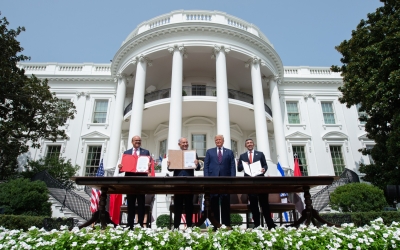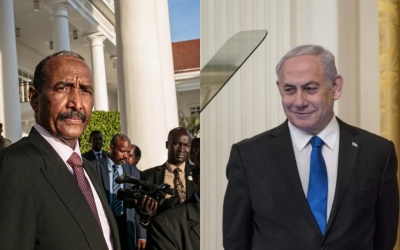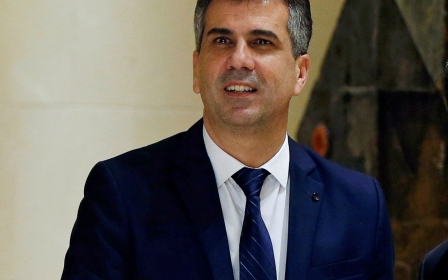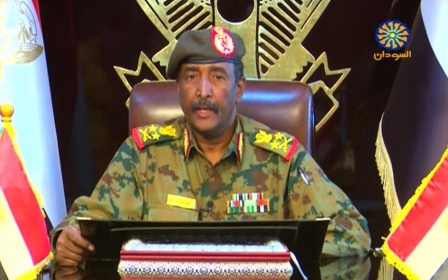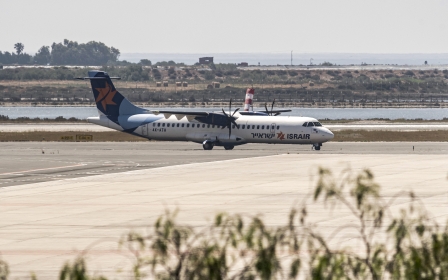Another Arab state to announce ties with Israel in 'day or two', US official says
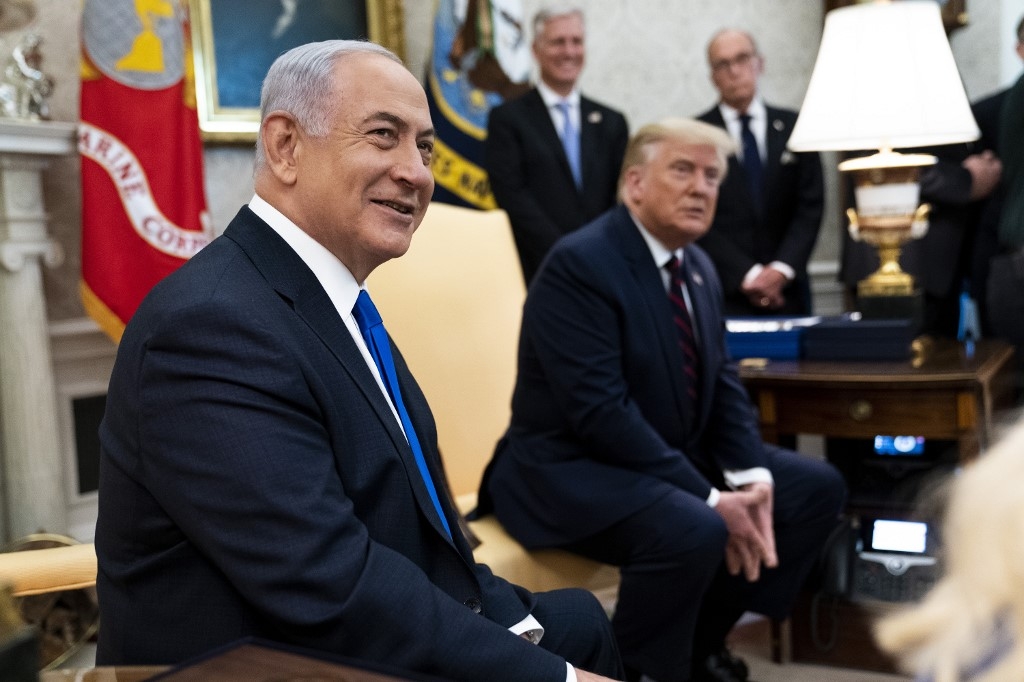
The United States expects another normalisation deal between Israel and an Arab country to be revealed in the coming days, according to the US ambassador to the UN.
Ambassador Kelly Craft, in a televised interview with Al-Arabiya on Wednesday, would not identify the country in question, but said the deal was expected to be announced in "the next day or two".
The United States has for months been pushing a campaign to bring other countries into the fold, hoping the move will further isolate Iran.
"We will have more being announced very soon," Craft said.
"It could be today… we are very excited and know that others are going to be following, and what we don't want to do is to isolate anyone, but to bring everyone on board in hopes that this will allow the Iranian citizens to see that people really want peace in the Middle East and they are part of this peace," the ambassador continued.
The United Arab Emirates and Bahrain recently became the first two Arab countries to normalise relations with Israel since the peace treaties with Egypt in 1979 and Jordan in 1994.
Oman, Morocco, Saudi Arabia and Sudan all turned down the US attempt to push normalisation during Secretary of State Mike Pompeo's regional tour last month, but some expect Khartoum and Muscat may be looking for ways to backtrack on their position.
"Obviously, we would welcome Saudi Arabia to be next," Craft added.
Sudan: Normalisation, an economy fix?
Last month, Sudanese Prime Minister Abdalla Hamdok, during a meeting with Pompeo in Khartoum, said he had no mandate to normalise ties, given his new government's transitional status.
Things may have started to shift this week, however, as US, Emirati and Sudanese officials held a meeting in Abu Dhabi on Monday regarding a possible normalisation agreement.
According to the US news website Axios, Sudanese sources have said the government of Sudan would ask for economic aid in return for such a deal.
The request is expected to include more than $3bn in humanitarian assistance and direct budgetary aid in order to deal with an economic crisis and fallout from devastating floods, as well as a commitment by the US and the UAE to provide Sudan with economic aid over the next three years, Axios said.
Sudan's ruling council had said on Sunday that its officials would discuss the removal of their country from a US list of state sponsors of terror with officials from Washington during the visit.
Ties with Israel are a sensitive issue in Sudan, which was among the strongest opponents of Israel under its former president, Omar al-Bashir, who was toppled last year after his 30-year rule.
But Sudanese authorities are under pressure to fix the economic crisis, which has worsened since Bashir's downfall. Inflation hit almost 170 percent last month, the currency has been in freefall and the government has declared an economic state of emergency.
Oman on the horizon?
There has also been speculation in diplomatic circles that Oman may be another Arab state to make an agreement with Israel, after an official representative of the Gulf Arab country was sent to the signing ceremony of the UAE-Bahrain-Israel accord last week.
Israel's intelligence minister has predicted that Oman, along with Bahrain, would be the next Gulf countries to follow the UAE in formalising ties with Israel.
Like Bahrain, Muscat initially said it would not take part in normalisation, but was quick to convey support for the UAE after the August deal.
Oman's foreign minister, Yusuf bin Alawi bin Abdullah, spoke with his Israeli counterpart, Gabi Ashkenazi, days after the UAE-Israel announcement in August, and the two discussed the "need to strengthen relations".
Bin Abdullah also spoke with an official from Fatah, the ruling party of the Palestinian Authority, and expressed the sultanate's support for a "comprehensive, just and lasting peace in the Middle East", and said negotiations on an Israel-Palestine peace process needed to resume.
The Palestinian leadership, who have called for normalisation only after the establishment of an independent state, have balked at such claims as empty words.
Oman has already been in dialogue with Israel for years, with Netanyahu paying a rare visit to Oman in 2018 in what was seen as reflective of the Gulf country's desire to play an influential role in the region. Netanyahu was the first Israeli leader to visit the sultanate since Shimon Peres in 1996.
Middle East Eye delivers independent and unrivalled coverage and analysis of the Middle East, North Africa and beyond. To learn more about republishing this content and the associated fees, please fill out this form. More about MEE can be found here.


